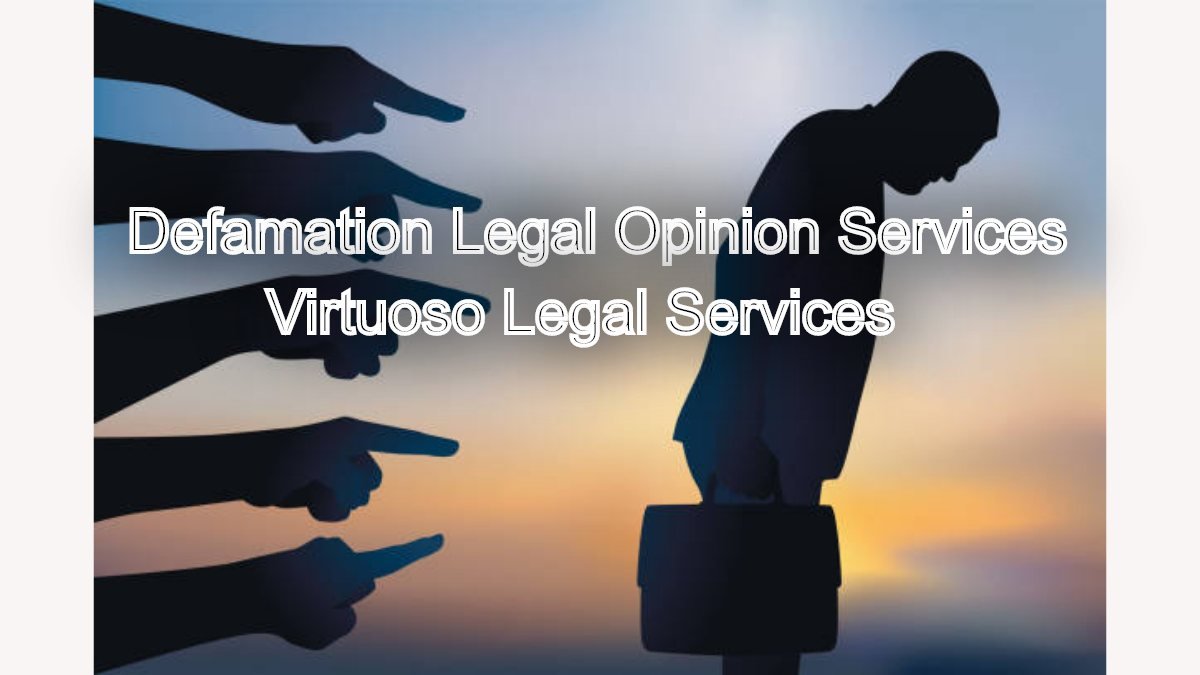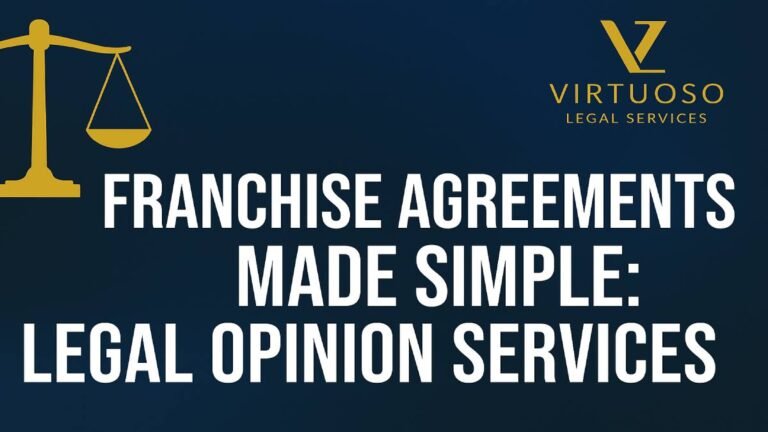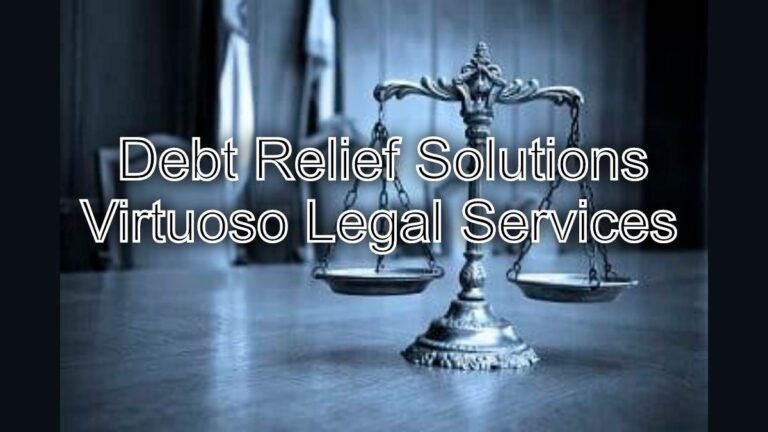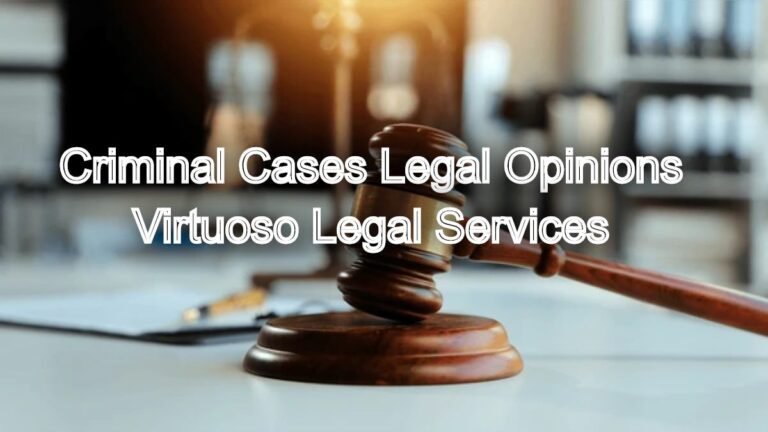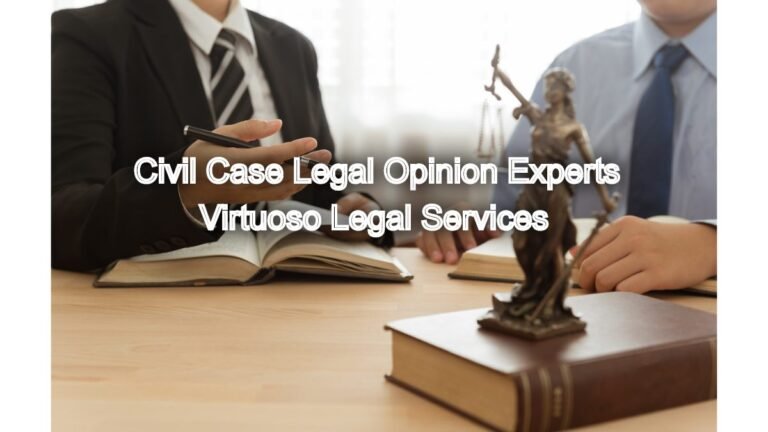Preserving Reputation: Defamation Legal Opinion Services
Preserving Reputation: Reputation is an invaluable asset. It builds trust. It opens doors. For individuals and businesses, a strong reputation is paramount. However, reputations can suffer harm. False statements can spread quickly. These statements can cause significant damage. Therefore, protecting one’s good name is crucial. Defamation law provides the legal framework for this protection. It offers remedies against damaging falsehoods. Virtuoso Legal Services offers specialized defamation legal opinion services. We help clients understand their rights. Protect their standing effectively. We provide expert legal solutions 24×7.
Preserving Reputation: Defamation Legal Opinion Services: Virtuoso Legal Services
Understanding Defamation: Slander and Libel
Defamation is the act of harming someone’s reputation. It involves making a false statement. This statement must be communicated to a third party. It must cause injury to the person’s character or standing. Defamation exists in two primary forms: slander and libel.
Slander refers to spoken defamation. It involves verbal false statements. For instance, making a false accusation during a public speech is slander. Damages in slander cases can be harder to prove. Libel, on the other hand, is defamation in a permanent form. This typically includes written statements. It covers publications in newspapers. It extends to online articles. Encompasses social media posts. It also includes images or broadcasts. Libel often causes more lasting damage. This is because the defamatory content remains accessible. Understanding this distinction is fundamental. It guides the legal approach to a defamation claim.
Key Elements of a Defamation Claim
For a statement to be considered defamatory, several key elements must generally be present. Firstly, the statement must be false. Truth is almost always a complete defense to defamation. A true statement, no matter how damaging, is not defamatory. Secondly, the statement must be published or communicated to a third party. If only the defamed person hears the false statement, it is not considered defamation in the legal sense.
Thirdly, the statement must be concerning the plaintiff. It must clearly identify, or be reasonably understood to refer to, the person whose reputation is harmed. Fourthly, the statement must be defamatory in nature. It must tend to lower the plaintiff’s reputation in the eyes of right-thinking members of society. Finally, the plaintiff must prove damage to their reputation. This damage can be financial loss. It can also be reputational harm. Sometimes, in cases of libel or serious slander, damages are presumed. Understanding these elements is crucial for assessing a potential defamation claim.
The Impact of Defamation on Individuals and Businesses
Defamation can have severe consequences. For individuals, it can damage personal relationships. It can affect professional standing. Might lead to loss of employment. It can cause significant emotional distress. A tarnished reputation can be difficult to restore. It can follow a person for years, especially with online content.
For businesses, defamation can be equally devastating. It can lead to loss of customers. It can damage brand image. Might result in decreased revenue. It can impact investor confidence. False accusations of misconduct, poor product quality, or financial instability can cripple a company. Therefore, proactive measures are essential. Swift legal action is often necessary. It protects the integrity and profitability of a business. Preserving reputation is an investment in future success.
Defenses Against Defamation Claims
While defamation law protects reputation, several defenses exist against such claims. The most common and powerful defense is truth. If the defendant can prove the statement is factually true, the claim will fail. Another important defense is fair comment. This applies to opinions expressed on matters of public interest. The comment must be based on true facts. It must be an honest expression of opinion.
Furthermore, privilege can act as a defense. Absolute privilege protects statements made in certain contexts, regardless of malice. This includes statements made during parliamentary proceedings or judicial proceedings. Qualified privilege protects statements made in good faith, on a matter of public or private duty. For instance, an employer providing a candid reference for an employee enjoys qualified privilege. Understanding these defenses helps assess the strength of a potential claim. It also informs how to respond to an accusation of defamation.
The Role of Legal Opinion in Defamation Cases
A defamation legal opinion is a crucial first step. It provides a comprehensive assessment of your situation. Lawyers analyze the facts. They review the alleged defamatory statements. Consider the context of publication. They evaluate potential damages. They also assess possible defenses.
This opinion provides a clear roadmap. It advises on the strength of a potential defamation claim. It outlines the likelihood of success. Estimates potential legal costs. It also suggests alternative courses of action. Sometimes, a cease and desist letter is sufficient. A public apology is preferred. Sometimes, full litigation is necessary. A well-researched legal opinion empowers clients. It allows them to make informed decisions. It helps them choose the most effective strategy to preserve their reputation.
Remedies Available in Defamation Cases
If a defamation claim is successful, various remedies are available. The primary remedy is damages. Compensatory damages aim to compensate the plaintiff for actual losses. This includes financial losses. It covers emotional distress. It accounts for reputational harm. Aggravated damages can be awarded for particularly malicious or oppressive conduct by the defendant. In rare cases, punitive damages may be awarded. These punish the defendant. They deter similar future conduct.
Besides damages, courts can issue injunctions. An injunction is a court order. It prohibits the defendant from repeating the defamatory statements. It can also order removal of existing defamatory content, especially online. A court might also direct the defendant to issue a public apology or retraction. These remedies aim to repair the harm caused. They prevent further injury to reputation. They restore the plaintiff’s standing.
Defamation in the Digital Age: Online Defamation
The internet has transformed defamation. Online defamation is a growing concern. Social media platforms, blogs, and online forums allow rapid dissemination of information. False statements can go viral instantly. This poses unique challenges. The anonymity of the internet can make identifying perpetrators difficult. The global reach of online content complicates jurisdiction issues.
However, the legal principles of defamation generally apply to online content. Courts are increasingly addressing online libel. They issue takedown orders. They compel service providers to reveal user identities. Therefore, it is crucial to act swiftly. Preserving evidence of online defamation is vital. Screenshotting posts and recording URLs is important. Virtuoso Legal Services specializes in online defamation. We leverage technology. We pursue legal remedies effectively in the digital realm.
Virtuoso Legal Services: Your Partner in Reputation Management
Virtuoso Legal Services offers unparalleled expertise in defamation law. Our team of experienced lawyers provides expert legal opinions. We understand the nuances of reputation management. We are committed to protecting your good name. Operate 24×7. We provide timely and effective legal solutions.
Meticulously analyze your situation. We assess the defamatory statements. Identify the responsible parties. We advise on the best course of action. Whether through cease and desist letters, negotiation, or litigation, we champion your rights vigorously. We guide you through the complex legal process. Our goal is to minimize damage. We aim to restore your reputation. We seek full compensation for any harm suffered. Trust Virtuoso Legal Services. We are your dedicated partners in preserving your most valuable asset.
Frequently Asked Questions
A: Defamation is the act of harming someone’s reputation by making a false statement communicated to a third party, causing injury. Its two main forms are slander (spoken defamation, such as verbal false accusations) and libel (defamation in a permanent form, like written articles, online posts, or broadcasts). Libel often causes more lasting damage due to its permanence.
A: To prove defamation, several elements must be present: the statement must be false, it must be published (communicated to a third party), it must be concerning the plaintiff (identifiably about them), it must be defamatory in nature (tends to lower reputation), and the plaintiff must prove damage to their reputation (financial or otherwise). Truth is a strong defense.
A: For individuals, defamation can damage personal relationships, professional standing, lead to job loss, and cause emotional distress. For businesses, it can result in loss of customers, harm to brand image, decreased revenue, and reduced investor confidence. Both individuals and businesses can suffer significant and lasting harm from false statements.
A: The most common defense is truth; if the statement is factually true, it is not defamatory. Other defenses include fair comment, which applies to honest opinions on matters of public interest based on true facts, and privilege (absolute for parliamentary/judicial proceedings, or qualified for statements made in good faith on a duty).
A: A defamation legal opinion provides a comprehensive assessment of your situation. Lawyers analyze the alleged defamatory statements, evaluate potential damages, and assess possible defenses. This opinion provides a clear roadmap, advising on the strength of a potential claim, estimating legal costs, and suggesting effective strategies like cease and desist letters, negotiation, or full litigation to protect and restore your reputation.
Conclusion
Reputation is a fragile yet powerful asset. It defines individuals and shapes businesses. False and damaging statements can erode it quickly. Understanding defamation law is therefore essential. It provides the necessary tools for protection and redress. Seeking a professional defamation legal opinion is a crucial proactive step. It empowers you to take decisive action.
Do not let defamatory statements go unchallenged. Do not allow your reputation to suffer in silence. Virtuoso Legal Services stands ready to assist. Our expert legal solutions are available 24×7. We specialize in protecting your good name. Contact us today. Secure your reputation. Ensure justice prevails. Your standing is our priority.
![Virtuoso Legal Services [Best Legal Opinion Services 24×7]](https://legalopinion.org.in/wp-content/uploads/2023/09/cropped-logo.png)
